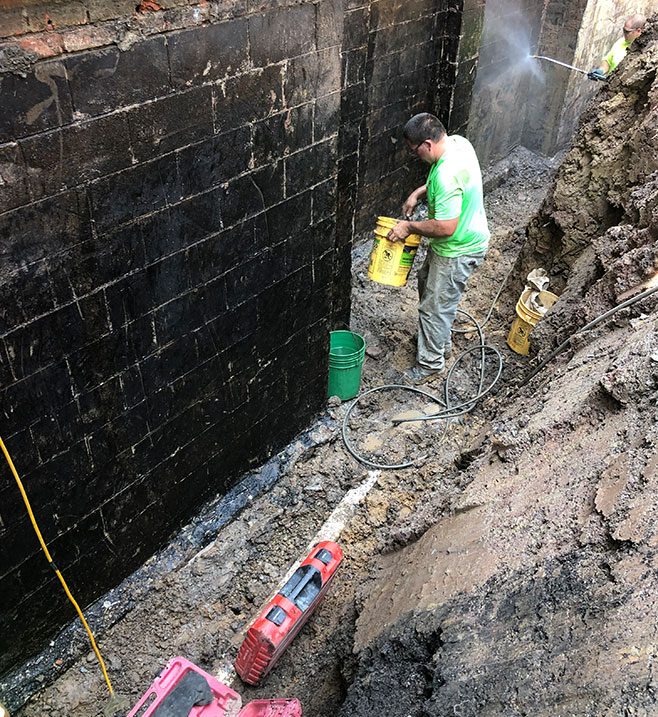When it comes to experiencing the beautiful outdoors in your recreational vehicle, one of the most important aspects to think about is ensuring it is waterproof. If you're stationed at a beautiful campsite or exploring through uncertain weather, confirming your RV is properly waterproofed can prevent pricey repairs and unpleasant experiences. Water damage can cause chaos in the interior and framework of your vehicle, leading to fungus, spores, and structural problems that may take thousands to fix. Understanding how to effectively waterproof your RV can both protect your asset but also boost your ease on the road.
In this guide, we will explore essential tips and tricks for waterproofing your RV efficiently. From spotting early signs that your RV requires care to choosing the best waterproofing products for your own situation, we shall offer essential insights that will assist you maintain a safe and dry and safe environment within your vehicle. Whether you are a veteran RVer or new to this, being diligent about waterproofing is key to preventing moisture issues and ensuring countless great experiences ahead.
The Importance of Waterproofing
The process of waterproofing is a essential aspect of maintaining the structure of any recreational vehicle. Just like houses need safeguards from water, recreational vehicles are vulnerable to leakage that can lead to significant repairs and costly renovations. Without Resources , water can infiltrate into the RV interior, causing mold growth, compromised structure, and deteriorating the comfort of your RV environment. This makes waterproofing crucial for maintaining your RV in top condition and prolonging its durability.
Ignoring waterproofing not only endangers the physical structure of your RV but can also have significant financial implications. Repairing click now can be far pricier than the initial investment in waterproofing solutions and strategies. By actively waterproofing your RV, you can prevent losing a lot in potential repairs down the line, ensuring that your purchase remains safe. This protective measure allows you to enjoy your travels without the constant concern of moisture problems.
Moreover, waterproofing contributes to overall energy efficiency, making your RV more pleasant and lowering heating and cooling expenses. When your RV is effectively sealed against damaging water, it also helps to maintain consistent indoor temperatures. This enhances a more pleasant living experience whether you are camping or stationary at a campsite. Effective waterproofing creates a barrier that not only defends from moisture but also boosts the overall utility and durability of your camper.
Popular Water Proofing Techniques
There are various proven waterproofing techniques that can be employed in many applications to shield structures from water damage. One of the most common methods is external waterproofing, which involves applying a waterproof membrane on the outside of foundations to stop water infiltration. This technique is especially useful in areas with elevated moisture levels or where significant rainfall is common. Installing drainage systems along with this membrane guarantees that any water is redirected away from the structure, reducing the risk of basement flooding and other moisture-related problems.
Interior waterproofing is another common technique that focuses on controlling moisture within the structures. This method utilizes the use of sealants and coatings that can be applied to walls and floors in basements and crawl spaces. By sealing cracks and openings, interior waterproofing helps to stop water from seeping in. This is particularly important in older homes where construction materials may have deteriorated over time. Additionally, proper ventilation and humidity control systems can boost the effectiveness of interior waterproofing solutions.
Lastly, roof waterproofing is vital for protecting buildings from water damage caused by leaks. This technique often includes the application of waterproof coatings or membranes on flat or sloped roofs. By ensuring that roofs are sealed, property owners can avert potential damage to the underlying structure. Regular maintenance and inspections are important to identify and repair any issues promptly, making certain that the waterproofing remains functional and extends the roof's lifespan.
Selecting the Appropriate Moisture-Proofing Methods

Choosing the appropriate waterproofing option is essential for successfully protecting your recreational vehicle against moisture damage. Start by analyzing the specific areas that demand protection, such as the roof, walls, and flooring. Each of these areas can be vulnerable to moisture intrusion, so it's critical to select a product designed for that specific purpose. Exploring different types of waterproofing materials, including coatings, sealants, and membranes, can help you discover the most suitable fit for your RV's unique needs.
Take into account the environmental conditions your recreational vehicle will face. If you often travel to areas with heavy rainfall or snow, select strong waterproofing products that can withstand extreme weather. Additionally, assess the long-term longevity of the options you are considering; certain solutions may provide short-term protection while others are designed for long-lasting effects. Consistently look for products that are easy to apply and maintain, ensuring you can effectively oversee waterproofing as part of your regular RV care routine.
In conclusion, do not hesitate to seek advice from professionals who specialize in RV waterproofing. They can offer important guidance into the best practices and products for your individual vehicle type. Specialized advice can help dispel common waterproofing myths and lead you to suitable solutions that will save you cost in the long run by averting costly water damage repairs. Investing time to determine the right waterproofing options can provide tranquility during your travels and safeguard your investment for an extended period to come.
